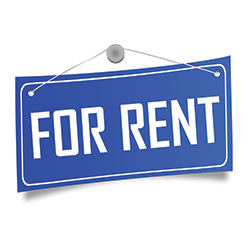|
exhibiting 101
 Questions to Ask a Venue
Before Planning an Event
On those rare occasions when event managers get to select a venue for an event, there are important things to discuss before signing on the dotted line. By Betsy Earle
Where we exhibit often is
decided for us. The convention
center and hotel room
blocks are selected, and it's our role
and responsibility to get set up in the
venue we've been assigned to. But
sometimes, we have the opportunity to
set up a stand-alone event with food
and beverage, entertainment, breakout
sessions, and room blocks. Or we
might have the chance to build an
auxiliary event to a larger conference
or trade show. Preparation for these
events requires a unique skill set, and
if you're new to the experience, I've
put together 10 questions for you to
ask before you book your next event
venue. And remember that before
you sign any venue contract or food
and beverage contract, it is not a bad
idea to send the document out to your lawyers for a legal consult.
1. What are your accessibility policies? By law, venues are required to comply with a number of accessibility policies. Some of these restrictions, however, are looser than others, and some properties have areas that fall into the “exception to the rules” category. Regardless of the laws and their limitations, it is imperative to be inclusive of all attendees and take their unique needs into consideration. Assess the property, including the number of guest elevators and wheelchair ramps. Don't limit this assessment only to the interior of the building. Make sure that you've also asked the venue about accessibility from the parking area and outside spaces. If you're dealing with an older building, take into consideration wheelchair access or ramp locations. Even compliant buildings may be compliant in an uncomfortable way that forces people to enter the building on an awkward sidewalk or away from the main lobby. Make sure the ramps are close to your event. If the venue you're looking at will also include a hotel room block, make sure that the property has hotel rooms with mobility access that can accommodate those with disabilities, including mobility, hearing, and vision impairments. Accessible features might include roll-in showers, accessible tubs, showers with grab bars, lowered peepholes, lowered vanities,touch-sensitive light fixtures, and handheld shower fixtures. 2. What are your food and beverage rules and minimums? Food and beverage contracts typically come with a series of minimums and requirements. Let's say, for example, that you've made a reservation at a restaurant in Las Vegas outside of the convention center for after-show hours. Most of these contracts will have either a total dollar minimum or a total attendee minimum with a minimum cost per attendee. You might see on the contract something like “$100 per person spend for 16 people” or you might see “$1,600++ minimum,” which would apply no matter how many people attend your dinner. This is similar to what you'd see on a convention center food and beverage contract. The ++ symbols mean that there will be tax and gratuity on top of the total amount. So, for a $1,600++ minimum with a 9 percent sales tax ($144) and an 18 percent gratuity ($288), you're looking at a minimum total spend of $2,032. Be sure to factor this in when you're budgeting for your program.When planning a dinner, decide whether you intend to offer a cash bar, drink tickets, or just soft drinks. Many properties offer a series of bar tiers, from premium beverages to basic beverages that include certain types of alcohol. You will be charged a fee regardless of how many people drink, and it will be based on the number of people included in your contract. Contracts vary tremendously, so it's important to ask your event manager when you can make changes to the total headcount as well as how many people you will pay for if more or fewer people show up to your program. 3. How easy is transportation to and from the facility? When I ask this question, it includes inquiries about parking rates, valet prices, and reentry permissions. Sometimes venues are willing to negotiate these rates. If you don't want to charge your guests for parking, you might be able to incorporate parking or valet costs into your contract. Also be sure to ask the venue how many parking spaces are available. If there are multiple events happening at the venue at the same time or if a large percentage of attendees are driving in, make sure that there are enough spaces for your attendees.Also find out if reentry is permitted and if there's special parking available for event management and vendors dropping off supplies. For example, if you're bringing in outside catering or floral and balloon displays, can the vendors park somewhere close to drop their items off or do they need to use a far-away garage or separate entry point? Oftentimes, properties will have behind-the-scenes parking or freight elevators to make this process easier, but some buildings do not offer these flexibilities. If the venue does not offer valet service, ensure you can bring your own service, or determine if the venue has trusted valet providers. My company once worked with a client in downtown Los Angeles. They were planning an event in a venue that didn't have parking, and we were tasked with reserving a parking lot and a valet service to transport vehicles and passengers to and from the lot. The first valet service we spoke with seemed a little shady and when we did some digging, we learned that they didn't own the parking lot that they were trying to rent to us. I caution you to get referrals and testimonials before contracting with these providers to make sure that they indeed own and have a license for the parking lot that they are telling you they will rent out. In addition to parking, consider ride-share pickup points and taxicab accessibility to and from your event. It's better to know in advance if people will need to walk a long distance to get to your event or if the ride-share options are easy so you can prepare them with that information to assist in their preparation for your program. 4. What are your room capacities? Think about how many people you need in a space before you book the venue and don't forget to consider the types of spaces that you need. Once you are in a contract, you're at the mercy of the space that you've signed up for. Do you need breakout rooms or meal rooms? Is there a main stage for a keynote speaker? Most properties will give you access to floorplans with table layouts and breakout spaces already in place so you can see how events are typically laid out. You can also ask your event partner for photos of previous events so that you can evaluate options and better gauge how much space you have. We have been in the situation with clients who have booked either too much space or too little space and come to us to solve the problem. If you have too much space, the room will look empty and attendees might think your event didn't go well or sell as planned. The challenge that comes with too little space is worse: You could end up not having space for everyone to navigate the room and creating bottlenecks.5. Are there other events happening during my program? You don't want to be the event manager who books a medical convention the same weekend as an erotic festival. I joke, but I have seen this play out more than once. I once attended a really nice event that hosted a "big truck" exhibition in the parking lot the same weekend. While it didn't ruin the event, it didn't give the vibe that the hosts were hoping for when people were entering the building. I think you get the message with these two examples, but my recommendations are to ask about what is already booked, what might be coming, and what the stipulations are for other events that may attempt to book space after your contract is signed. 6. What terms in the contract should I be made aware of? Venue contracts are unlike other types of contracts that you see while designing a booth, and while I cannot provide legal advice, I can guide you toward some of the contract terms to be on the lookout for. One important clause to look for in your contract is the attrition clause, and you should study it in detail before signing a contract. Attrition is the fees that you will be charged if you do not meet the room block obligations that you signed up for in the contract. There is typically a cutoff date at which point you need to release rooms back to the block or pay for them regardless of whether you use them. Make sure when you're negotiating your contract that you are aware of these terms and comfortable with them, and negotiate them as close as possible to the event to make sure that you are not stuck paying for rooms that you are not using. Also look out for cancellation clauses, force majeure clauses, and any stipulations about parking, addons, and other benefits you might (or might not) be eligible for. 7. How will you help us communicate to attendees where to go and how to find the event? When it comes to navigating a venue, sometimes getting attendees to and from your program is like herding cats. It's important to consider all of the possible ways attendees might locate your event and guide them from Point A to Point B. Some simple solutions that the venue might offer are wayfinding signs on stands or monitor kiosks indicating directions. But if you ask your event manager, you might learn that they have more options, such as a venue app, room drops, or a concierge service that can provide special services to your VIP guests. If the space is especially large and people can easily get lost, research this at the beginning so you can communicate this information to attendees in advance of the program. Every so often, we find a venue that is difficult to locate on the Uber or Lyft apps, or even in Waze and Google Maps. If you test this and have a hard time finding the venue, ask if there is a better search term for attendees to use to find your location. Or you can email your attendees a map in advance of your program. 9. What on-site amenities do you offer that might help my event? Depending on the size of the property you choose for your event, you might have access to a series of amenities that you don't even realize are there. For example, does the property have a shipping center on site? Is breakfast included in the room rate? If not, are you allowed to offer your attendees a breakfast voucher? If wifi is not included with the room reservation, do you plan to cover that cost for your attendees? Or maybe the venue offers interesting gym amenities, such as yoga mats or massage guns attendees can borrow. Or perhaps spa treatments are available. If these on-site amenities require additional expense for your guests, consider working with the property to take those costs into consideration in your preliminary budgeting. Maybe you want to pay the resort fee, or maybe you want to call out the resort fee on the website when your attendee is booking their room to make sure they don't overlook that additional cost. Your decision is going to depend on your parameters, budgets, and individual customer needs, but if you know the options up front, you will be better able to assist your attendees. 10. What is in close proximity to the venue, such as other lodging facilities, restaurants, coffee shops, and business or retail services? Some venues might have a series of solutions on site that will meet your or your attendees' needs. But oftentimes, you will need to leave the venue to gain access to things that you need for your event. The venue should be able to provide you with that information. For example, if you are a Hilton Honors member, you will typically see an option in the Hilton app to view local venues and activities. If you know that this information is available in advance of your program, you can let your attendees know that the resource is available so that their experience is easier and more convenient.Navigating the challenges of working with new event venues, although sometimes difficult, can be fun and rewarding if you take your time, think it through, and make sure you ask your event partner the right questions. Every event is unique and some of the coolest venues offer amenities that you might not find anywhere else. Look at the cool features in addition to getting answers to these questions, and you'll be on your way to success.E  Betsy Earle, CTSM
Betsy Earle, CTSMmanaging director and founder of Event Driven Solutions LLC. Earle obtained her MBA at the University of Miami and earned her Diamond-level CTSM designation in 2018. Exhibiting101@exhibitorgroup.com
|
|
|
||||||||||||||||||||||||||||
|
|
||||||||||||||||||||||||||||
|
TOPICS Measurement & Budgeting Planning & Execution Marketing & Promotion Events & Venues Personal & Career Exhibits & Experiences International Exhibiting Resources for Rookies Research & Resources |
MAGAZINE Subscribe Today! Renew Subscription Update Address Digital Downloads Newsletters Advertise |
FIND IT Exhibit & Display Producers Products & Services All Companies Get Listed |
EXHIBITORLIVE Sessions Certification Exhibit Hall Exhibit at the Show Registration |
ETRAK Sessions Certification F.A.Q. Registration |
EDUCATION WEEK Overview Sessions Hotel Registration |
CERTIFICATION The Program Steps to Certification Faculty and Staff Enroll in CTSM Submit Quiz Answers My CTSM |
AWARDS Sizzle Awards Exhibit Design Awards Portable/Modular Awards Corporate Event Awards Centers of Excellence |
NEWS Associations/Press Awards Company News International New Products People Shows & Events Venues & Destinations EXHIBITOR News |
||||||||||||||||||||
|
||||||||||||||||||||||||||||






